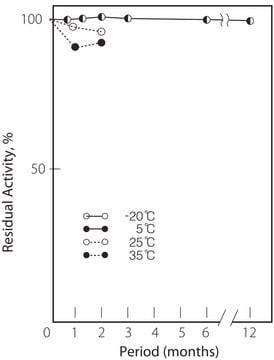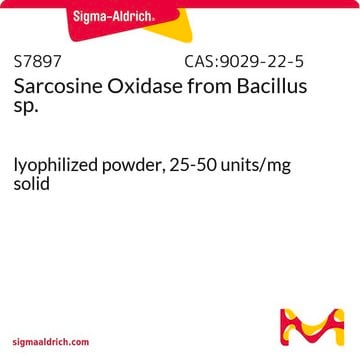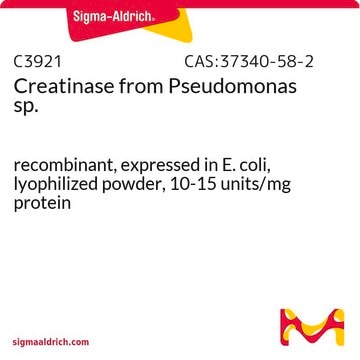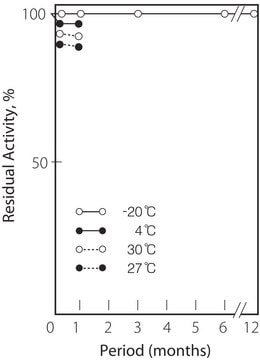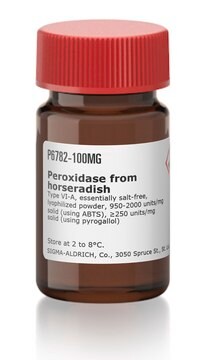C3172
Creatininase from microorganisms
lyophilized powder, 100-300 units/mg protein
Sinónimos:
Creatinine Amidohydrolase
About This Item
Productos recomendados
form
lyophilized powder
specific activity
100-300 units/mg protein
mol wt
~175 kDa
composition
Protein, 65-85%
foreign activity
Creatinase and urease ≤1%
Hexokinase and ATPase ≤0.1%
storage temp.
2-8°C
Application
Biochem/physiol Actions
Physical properties
Michaelis constants:3.2 x 10‾2M (Creatinine), 5.7 x 10‾2M (Creatine)
Structure:6 subunits per mol of enzyme (One mol of zinc is bound to each subunit)
Inhibitors:Ag+, Hg++, N-bromosuccinimide, EDTA
Optimum pH:6.5 − 7.5
Optimum temp:70°C
pH Stability:pH 7.5 − 9.0 (5°C, 16hr)
Thermal stability:Below 70°C (pH 7.5, 30 min)
Unit Definition
Physical form
Analysis Note
signalword
Danger
hcodes
pcodes
Hazard Classifications
Resp. Sens. 1
Storage Class
11 - Combustible Solids
wgk_germany
WGK 3
flash_point_f
Not applicable
flash_point_c
Not applicable
ppe
Eyeshields, Gloves, multi-purpose combination respirator cartridge (US)
Certificados de análisis (COA)
Busque Certificados de análisis (COA) introduciendo el número de lote del producto. Los números de lote se encuentran en la etiqueta del producto después de las palabras «Lot» o «Batch»
¿Ya tiene este producto?
Encuentre la documentación para los productos que ha comprado recientemente en la Biblioteca de documentos.
Los clientes también vieron
Nuestro equipo de científicos tiene experiencia en todas las áreas de investigación: Ciencias de la vida, Ciencia de los materiales, Síntesis química, Cromatografía, Analítica y muchas otras.
Póngase en contacto con el Servicio técnico